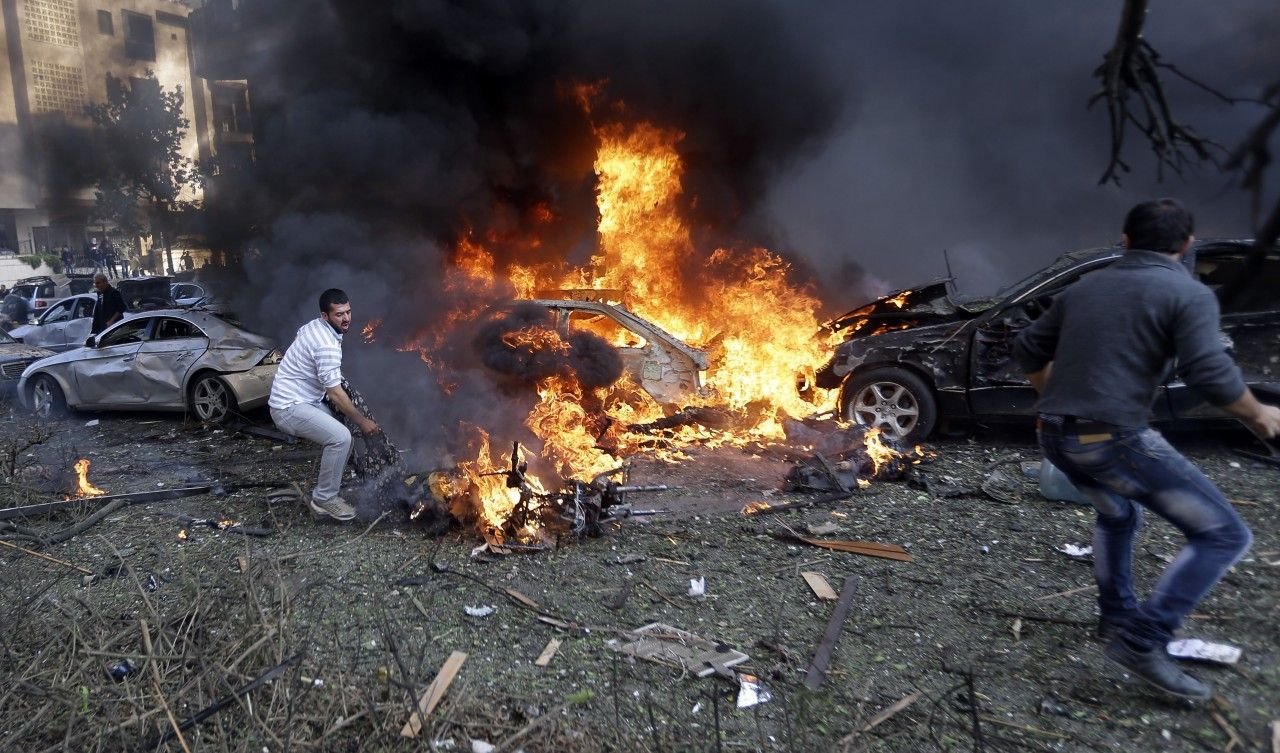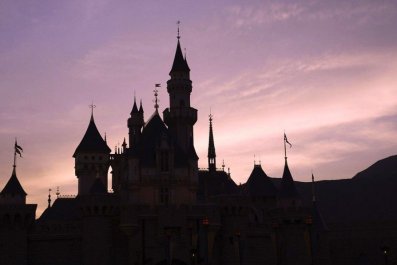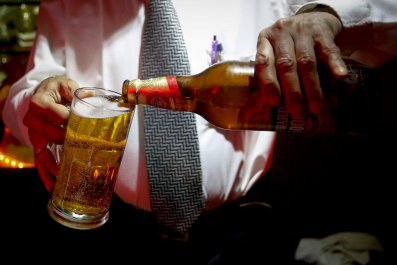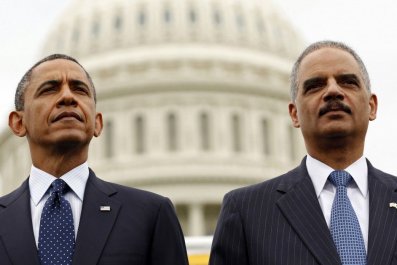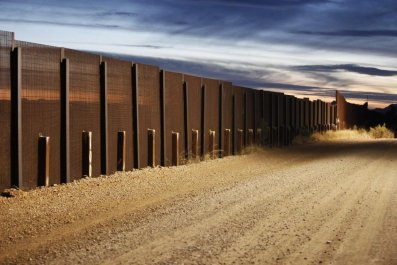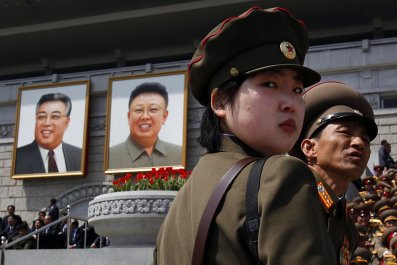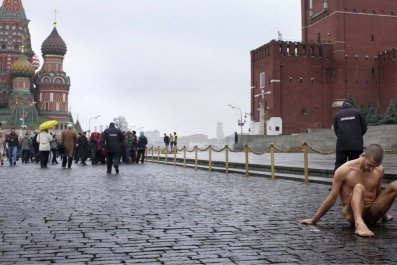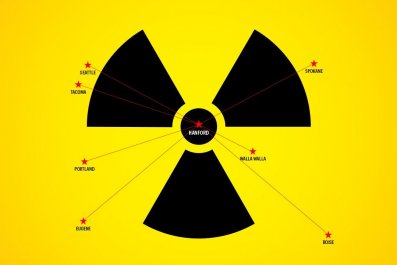The streets of Hamra, a busy Beirut district, are packed on Thursday nights. It's the start of the Middle Eastern weekend, the time when friends meet at the cafes and coffee shops to celebrate the end of the workweek.
The red and white Christmas lights - even though this is not a predominantly Christian neighborhood - have just gone up.
Weekends are popular in Beirut. Hairdressers are full. Music and laughter blare out of car windows. Restaurants, despite an economic crisis, are packed.
But after Tuesday's twin suicide bombings that ripped through concrete walls of the Iranian Embassy in the southern suburbs, killing 23 people, including an Iranian diplomat, and wounding 146, there is a clear underlying tension.
Suicide bombings in this part of the world usually trigger a retaliation. A day after the attacks, the Iranian-backed Hezbollah - the Shiite "Party of God" - warned that more bombs similar to the suicide blasts could be set off.
"But we're Lebanese. No one is going to stay home because of the bombs," said Hosam, who owns and runs a small business here. Born at the start of the Lebanese civil war in 1975, Hosam and his family have lived through sectarian strife before.
"The war went on until 1990, so my entire childhood and teenage years were about seeing people killed," he said. "It was a terrible time. You see downtown Beirut now? It's beautiful. But I remember the war. The Green Line, [which divided East and West Beirut,] the bullets, and dogs eating dead bodies on the streets."
Hosam does not want his two small children to experience the bomb-strewn, bloody childhood he had to endure. And yet he feels that with the escalating Sunni-Shiite tensions and the spillover from neighboring Syria's war, his entire family will soon be affected.
The bombings were the first on an Iranian target, and the most serious in the southern suburbs, since the 32-month conflict in Syria began. The embassy is nestled deep in the heart of the fiefdom of Hezbollah - whose fighters are currently backing the regime of President Bashar al-Assad in the civil war in neighboring Syria.
Within hours, the al Qaeda-backed Abdullah Azzam brigade was boasting on Twitter, taking full credit for the attack. Sheikh Sirajuddin Zurayqat said attacks on Lebanon would continue unless Hezbollah fighters pull out of Syria.
The Sunni jihadist group the Azzam brigade is based in Lebanon but has ties to Saudi. The Saudis - along with other Sunni groups backing the Syrian rebels - are increasingly agitated by the assistance Hezbollah and Iran are giving to Assad. The rebels just lost another strategic town, Qara, north of Damascus, over the weekend and are feeling their losses acutely.
A year ago, Lebanese people did not think they could be pulled into the troubles of their neighbor. "We've seen too much war. We will never experience that again," said Maria, a Christian teacher in Tripoli in northern Lebanon, when asked whether war could return to her country.
But this week, the sight of charred bodies, broken bones and families searching for loved ones near the bombing site triggers a bitter memory of the civil war. That conflict left deep scars. It broke spirits, destroyed cities, scattered families, and sent thousands of Lebanese into exile.
"Lebanon is being dragged into the Syrian conflict. The spillover is unmistakable," said Professor Hilal Khashan from the American University in Beirut.
Khashan believes the perpetrators were clearly "jihadists from Syria who crossed the border." He said this is the first suicide bombing in Lebanon since 1983, when, almost exactly 30 years ago, two attacks targeted the U.S. Marines and the French military headquarters, killing 299 American and French servicemen.
"It is not a Lebanese practice to engage in suicide bombing," he said. "So the explosions on Wednesday were clearly sending a message to Iran to scale down their support of the Syrian regime."
The 1983 attacks took place at the height of the Lebanese civil war, when Beirut was a gutted front line. Today, it is rebuilt into a glittering, bling-bling capital city. Boutique hotels ring what once was the Green Line.
Designer shopping malls are crowded with beautiful people. And the exclusive beach clubs in the summer months dot the shore. Neighborhoods like Hamra or Gemmayze are alive with young people who were not even born when the civil war ended.
But their parents and their grandparents lived through it. Tuesday's bomb is a bloody symbol of the larger regional sectarian conflict - and this is what they fear the most.
"The attack will add fuel to the fire of sectarianism," said former Lebanese Defense Minister Albert Mansour. "These innocents were killed in an act of cold-blooded terrorism."
Lebanon is a tiny country, sharing a long border with Syria. Every day, Syrian refugees stream across that border, destabilizing Lebanon's already fragile, fractured mosaic. This week, they have been fleeing from the fighting in Kalamoun inside Syria. In the past week, more than 13,000 have crossed into Lebanon. Already more than a million are in the overstretched country.
Some Lebanese Sunni factions who back the Syrian rebels use border areas as supply routes and as a rear base. Arsaal, in northeast Lebanon, is the home of the jihadists. It is a looming no-man's-land, just across the border from Kalamoun.
This is the second bombing in recent months in Beirut's southern suburbs. The first was on August 15, shattering the lazy days of summer. That bomb may have been linked to the brutal push last June by Hezbollah-backed Syrian government troops to retake the city of al-Qusayr. That city had been a strategically important point for Sunni fighters and combatants passing back and forth across the border.
But why attack the Iranian Embassy? According to Zaid Ibrahim, a member of the Syrian Revolution Local Coordinating Committees, "maybe the point of this operation is to increase the popularity of Iran and Hezbollah in Lebanon," he said. "Because of their recent substantial losses in Syria."
One thing is clear: The bombing has pushed Lebanon much further into the Syrian conflict than it would like to go.
"As long as Lebanon is inside Syria," said one European diplomat, "Syria will be inside Lebanon.
Most people fear retaliation in the form of more bombing, this time from Hezbollah against Sunni targets. But Khashan is more concerned with the long-term effects on Lebanon.
"This is an act of despair." he said. "It doesn't really succeed in changing the realities on the ground."
The broken and dead bodies lying in rubble also bring back a dark chapter from the past that most Lebanese would like to forget.
"The Lebanese have learnt their lesson," said Khashan. But the bombing "has the potential of awakening ugly sectarian feelings and memories."



